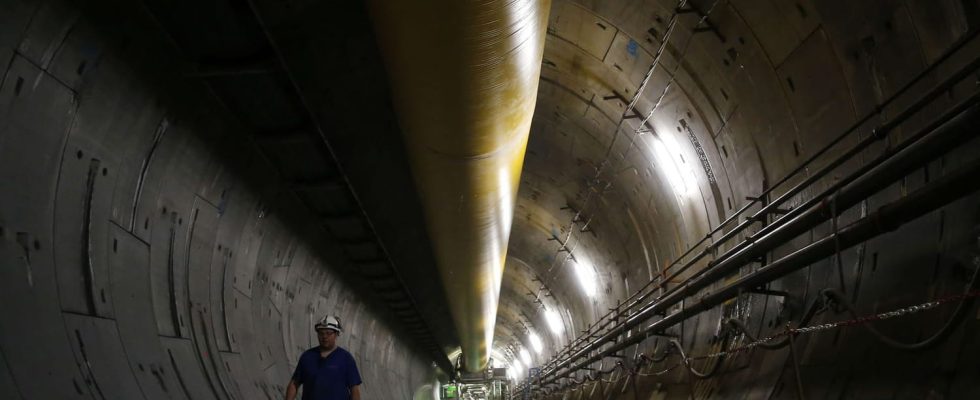While the Savoy prefecture has banned the demonstrations planned for this weekend against the Lyon-Turin project, this railway line launched more than 30 years ago is back in the public debate. What does it consist of?
Several thousand people are expected this weekend in the Maurienne valley to protest against the Lyon-Turin project, despite the ban by the Savoy prefecture on the holding of these demonstrations. But by the way, what is this project for a railway line linking France to Italy all about? It is a pharaonic construction site which extends, in total, over nearly 270 km (70% in France and 30% in Italy), as indicated by the site of TELTthe Franco-Italian public promoter in charge of carrying out the cross-border section of the project.
This cross-border section, which must connect the town of Saint-Jean-de-Maurienne (Savoie) to that of Bussoleno, in Italy, is 65 km long. As part of this new section, a 57.5 km railway tunnel through the Alps is to be built. It will connect the stations of Saint-Jean-de-Maurienne and Suse, in Italy. Of these 57.5 km, 45 km will be dug in France and 12.5 km in Italy, again according to the TELT site. For the moment, ten kilometers have already been dug for this tunnel on the French side, indicates France Bluestating that the objective is for the tunnel to be operational in 2032.
The purpose of this new railway line is to “reduce the time and cost of transporting passengers and goods”, writes TELT on its website. For the promoter, it will make it possible “to relieve the alpine roads of a million heavy goods vehicles and to reduce greenhouse gas emissions each year by around one million tonnes of CO2 equivalent”, which corresponds according to TELT to “the equivalent produced by a city of 300,000 people”. The cost of carrying out the cross-border section is estimated at 8.6 billion euros, indicates the promoter. The summit is financed 40% by the European Union, 35% by Italy and 25% by France. Taking into account all the works necessary for the 270 km of the new Lyon-Turin line, we reach 26 billion euros, according to a report by the Court of Auditors published in 2012, recalls France Inter.
Why is the Lyon-Turin project criticized?
Many environmental associations and left-wing elected officials are now campaigning against this project for a railway line between Lyon and Turin, launched in 1991. They believe in particular that the line that already exists between the two cities is underused, and that it would be necessary rather renovate it to reduce the transport of goods by heavy goods vehicles. “There are already lines that exist and in twenty years, rail freight between France and Italy has been divided by 5”, thus affirmed the ecologist deputy Sandrine Rousseau, invited on franceinfo this Friday, before estimating that the millions of euros invested in this project “should be put on support for an existing freight network throughout France, the renovation of lines, the strengthening of infrastructure”.
The environmental impact of this titanic project is also singled out. The association Les Uprisings of the Earth is thus calling for demonstrations against the project this weekend in Maurienne “for the defense of the mountains and water”, alongside a dozen other organizations, indicates West France. “Already dozens of springs drained by the machines have dried up or lost flow, groundwater has been pierced, 1,500 hectares of agricultural land will be artificialized”, warns the association.
The defenders of the project answer for their part that the existing line is too old to significantly increase rail freight. “The infrastructure dates from the 19th century and we cannot massively traffic for security reasons”, affirms Stéphane Guggino, general delegate of the Transalpine, an association bringing together actors involved in this project and campaigning to facilitate and accelerate its construction. “The project will not empty the Alps of its water. There is a real difference between militancy and competence on this subject”, he asserts. Words reported by West France. However, the Ministry of Ecological Transition was seized a year ago by the National Commission for Ethics and Public Health and Environmental Alerts on “the risks presented by the construction site for drinking water catchments “, remember Reporterrewhich states that the ministry did not provide a response.
